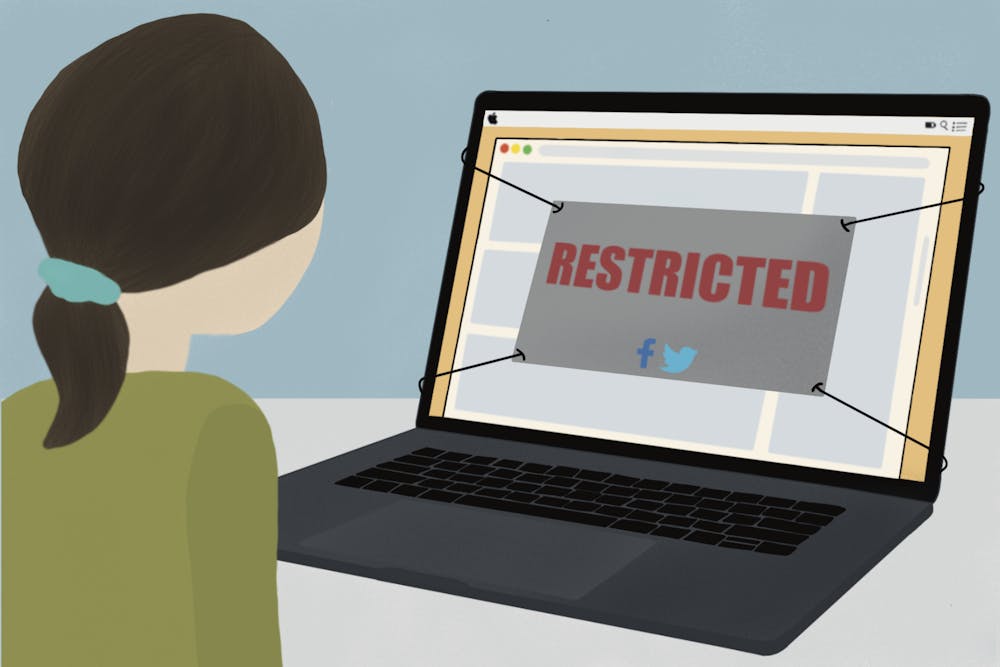Last month, Twitter and Facebook decided to restrict access to a likely false New York Post story about Hunter Biden’s time at a Ukrainian natural gas company. These decisions should not be celebrated as a victory against “fake news” because they set a dangerous precedent for the role of Big Tech in our media.
Over the past four years, there have been nearly constant conversations about the role of “fake news” and disinformation in American media and politics. In this context, many people might view social media’s suppression of the Post story as a good thing: The story was unsubstantiated and fueled by Donald Trump’s political allies, so giving it a massive platform could only result in more misinformed people.
For this specific example, it would be hard to argue against that opinion — the Post article was so sketchy that a reporter at the tabloid refused to put his name on it. However, it is important to look specifically at why the social media giants actually chose to suppress the article.
Facebook’s policy communications director, Andy Stone, announced the article would be fact-checked by Facebook, which is in line with the company’s policy on misinformation. Twitter’s justification for the suppression of the Post story was that it violated the company's policy on distributing hacked material. In fact, Twitter went so far as to completely suspend the New York Post’s account for this violation.
Eventually, their account was unsuspended and the hacked material policy was changed, which underscores the arbitrary nature of social media’s supposed fight against misinformation. These companies’ policies and decisions are not enshrined in any laws or produced by a democratic consensus. They are just decided on by the companies themselves. This means they will always reflect the interests of the company and its leaders — if they also happen to help the general public, then that’s a happy accident, not the goal.
There is a relevant saying in the legal world that “hard cases make bad laws." This adage explains that extreme legal cases make a bad foundation for laws which would usually apply to more average situations.
Situations such as the Hunter Biden story are extreme cases — they are obvious attempts at disinformation which could have had major consequences on American politics. Since the vast majority of news stories don’t share those qualities, we shouldn’t draw rules about distributing information online based on those extreme examples.
This means that we must be very careful about how we respond to Twitter and Facebook’s handling of the Hunter Biden story. If the public applauds Big Tech’s decisions to censor the article, then it gives them cover to be more extreme in the future, slowly gaining even more and more power over what we are able to see online.
Sure, it’s possible these corporations will use that power to do what they see as right, but that’s an entirely subjective standard. What if fake stories emerge which seem to support their political goals? It is almost guaranteed that someone will publish a story which is harmful to Facebook or Twitter. If the precedent has been set that these companies can control the articles users can view and share, what is there to stop Twitter or Facebook from censoring news which hurts their bottom line?
Of course, this doesn’t mean that we should let social media companies off the hook. Due to their inaction, social media platforms have been used for the coordinated spread of disinformation and fake conspiracy theories. However, the problem of fake news is not really new; it’s not like our politics was a bastion of objective truth before Facebook existed.
Therefore, the root of the problem isn’t the technology itself, it’s who controls it. With the rise of surveillance capitalism, social media companies have one goal — collect as much of our data as they possibly can and sell it to the highest bidder. As long as their allowance of disinformation still lets them turn a profit, then they’ll keep doing it. If we want social media platforms that work for social good instead of a profit, then we need to create a system where nobody can get rich by trafficking disinformation.

